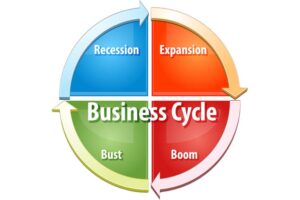Managing money wisely is crucial for financial stability and success. However, many Americans make common financial mistakes that can lead to long-term struggles. Identifying and correcting these errors can pave the way for a secure financial future. Below are some of the most common money mistakes and how to avoid them.
Living Beyond Means
One of the most prevalent financial mistakes is spending more than what is earned. Many individuals rely on credit cards and loans to sustain a lifestyle they cannot afford, leading to debt accumulation.
How to Avoid It: Create a budget and track expenses. Live within your means by prioritizing essential expenses over luxury purchases.
Not Having an Emergency Fund
Unexpected expenses such as medical emergencies, car repairs, or job loss can significantly impact financial stability. Many Americans lack an emergency fund, forcing them to rely on credit or loans.
How to Avoid It: Set aside at least three to six months’ worth of expenses in a high-yield savings account. Automate savings to build this fund gradually.
Ignoring Retirement Savings
Many people delay contributing to retirement accounts, thinking they have ample time. However, the longer one waits, the more they miss out on compound interest.
How to Avoid It: Start saving early by contributing to employer-sponsored 401(k) plans or individual retirement accounts (IRAs). Take advantage of employer matching programs to maximize savings.
Accumulating High-Interest Debt
Credit card debt is one of the most expensive financial burdens due to high-interest rates. Many Americans make the mistake of only making minimum payments, prolonging the debt cycle.
How to Avoid It: Pay off credit card balances in full each month. If you have existing debt, prioritize paying off high-interest debts first using strategies like the debt avalanche or debt snowball method.
Neglecting to Invest
Keeping all money in a savings account may feel safe, but it does not keep up with inflation. Many individuals miss out on wealth-building opportunities by avoiding investments.
How to Avoid It: Learn about different investment options such as stocks, bonds, and mutual funds. Start with low-risk options and gradually diversify your portfolio.
Failing to Budget and Track Spending
Without a budget, it is easy to overspend and lose track of where money is going. Many Americans struggle with financial planning because they do not keep track of their expenses.
How to Avoid It: Use budgeting apps or spreadsheets to monitor income and expenses. Set financial goals and review your budget regularly.
Overlooking Insurance Needs
Many people see insurance as an unnecessary expense until they face an emergency. Not having adequate health, auto, or life insurance can lead to financial disasters.
How to Avoid It: Assess your insurance needs and ensure you have sufficient coverage. Shop around for the best rates and consider bundling policies for discounts.

Making Emotional Financial Decisions
Emotions often drive financial decisions, leading to impulsive purchases, panic selling in the stock market, or taking unnecessary risks.
How to Avoid It: Make financial decisions based on logic rather than emotions. Take time to research and consult financial experts before making significant financial moves.
Not Having a Will or Estate Plan
Many Americans fail to plan for the future, leaving their assets vulnerable in case of unexpected events. Without a will, loved ones may face legal complications and financial hardships.
How to Avoid It: Create a will and designate beneficiaries for your assets. Consider consulting an estate planner to ensure a smooth transfer of wealth.
Underestimating the Cost of Lifestyle Inflation
As income increases, so do expenses. Many people upgrade their lifestyle without saving or investing more, which can prevent long-term financial growth.
How to Avoid It: Avoid unnecessary lifestyle upgrades. Instead of spending more as income grows, increase savings and investments to secure financial independence.
Skipping Financial Education
A lack of financial literacy leads to poor money management, bad investments, and unnecessary debt.
How to Avoid It: Continuously educate yourself on personal finance. Read books, follow financial experts, and take advantage of online resources to improve financial knowledge.
Final Thoughts
Avoiding these common money mistakes requires discipline, education, and planning. By making informed financial decisions, building healthy financial habits, and planning for the future, Americans can achieve financial stability and long-term success.





